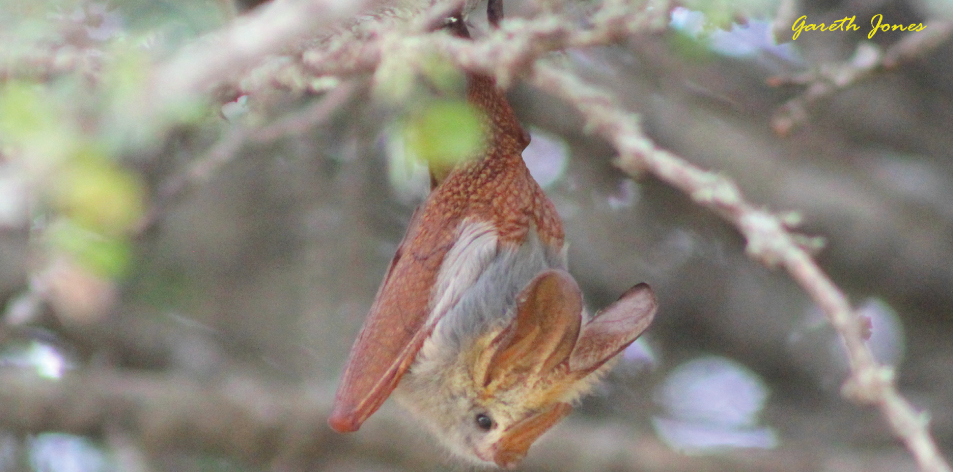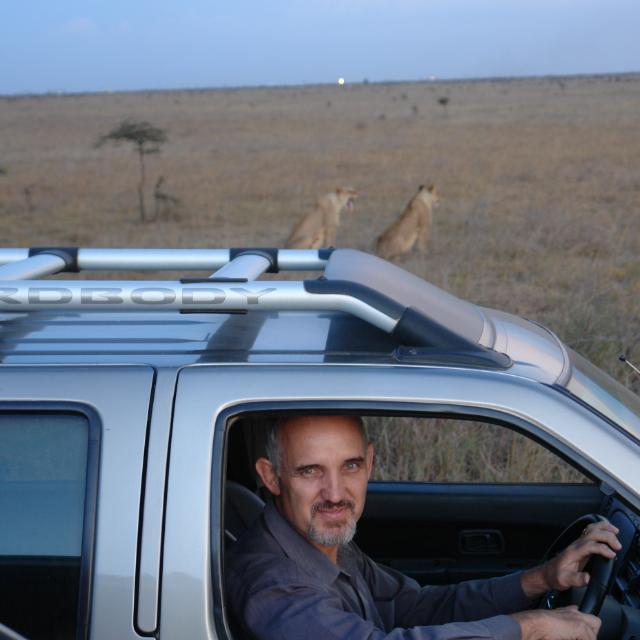
Our Friends The Bats!!- Article by Gareth Jones
Our Friends The Bats Of Nairobi National Park
Sometimes, there are times when we really slow down to look for the really small things. One day near the hippo pools, our reward came in the form of some bats that were flushed out of their roosting tree by birds. Because we were sitting quietly they flew quite close to us, and we noted that they were tiny with yellow wings, large ears and an elongated sensor-nose. We later found out that they are called yellow-winged bats (Lavia frons) one of five species of false vampire bat in Africa. Another places to often see bats is very early in the morning just before 06h00 at the main gate. While waiting for the park to open, just sitting quietly and watching the bats above the gates can be enjoyable.
After this sighting, I realized that there are so many bat species, yet very few people know much about them, except perhaps for a few old wives tales. We noted that there are about 400 mammal species in Kenya, with bats consisting of about 25% of all mammal species, approximately 100 species are found in Kenya. Bats are the only mammals that can truly fly, and also with extreme skill over long distances. Bats may be small, but they’re fast little creatures. How fast a bat flies depends on the species, but they can reach speeds over 100 miles per hour according to new research. Most people have a fear or negative opinion of bats, believing they are dirty, ugly or might have rabies. In the last 2 years especially, since the “planned”emic arose out of Wuhan in China, sadly bats were included in the possible cause of the origins of the Severe acute respiratory syndrome-coronavirus 2 (SARSCoV2), also known as the coronavirus, the virus that causes COVID-19 (coronavirus disease 2019). The Wuhan Institute of Virology (WIV) has been studying coronaviruses in bats for over a decade. However, it should be noted that artificial laboratory experimental conditions using animals like bats, are very different from bats being left alone in the wild.
For thousands of years bats have existed in relatively close proximity to mankind, without causing any dreaded illnesses worldwide. I believe that the current global fears and suspicions regarding bats need to be communicated to concerned people as a message that informs people that in their natural role bats are actually incredible creatures that are actually assisting mankind due to their responsible role in nature.
However, bats do much good, and are really amazing in how much they make life better for many people. Bats are incredible in that they use specialised echo-location techniques to find their prey and “see” their surroundings. They make echo-calls that travel through the air to locate prey. The echo-calls bounce off prey and echo back to the bat, letting them know exactly where the prey is by making up to 160 calls per second, to allow a fast and accurate strike. Bats significantly reduce insects when feeding and can consume hundreds of mosquitos in a single night, therefore reducing diseases like malaria. Other species also eat many crop destroying insects. Bats do lots of things that are good for people. In warm countries they pollinate plants that grow crops that humans like to eat or use – mango, avocado, banana, papaya, agave cactus, balsa wood and cocoa for example. Yes – even cocoa – this means that your chocolate bar relies on the hard work done by bats. In tropical forests after fruit bats have had their dinner, they fly around and poop out seeds that then grow up into new forests! In fact, without bats, many tropical forest trees would not regrow after they get cut down. And, speaking of bat poop, in some parts of the world where large numbers of bats roost in caves, people sometimes collect their droppings (guano). Guano is excellent fertiliser that helps grow healthy food crops. Yes!! it’s true, bats are an incredible creation, and are actually our wonderful friends, helping to regrow forests, making their droppings available as fertilizer, assisting in pollination of certain plants and reducing insects like mosquitos.


